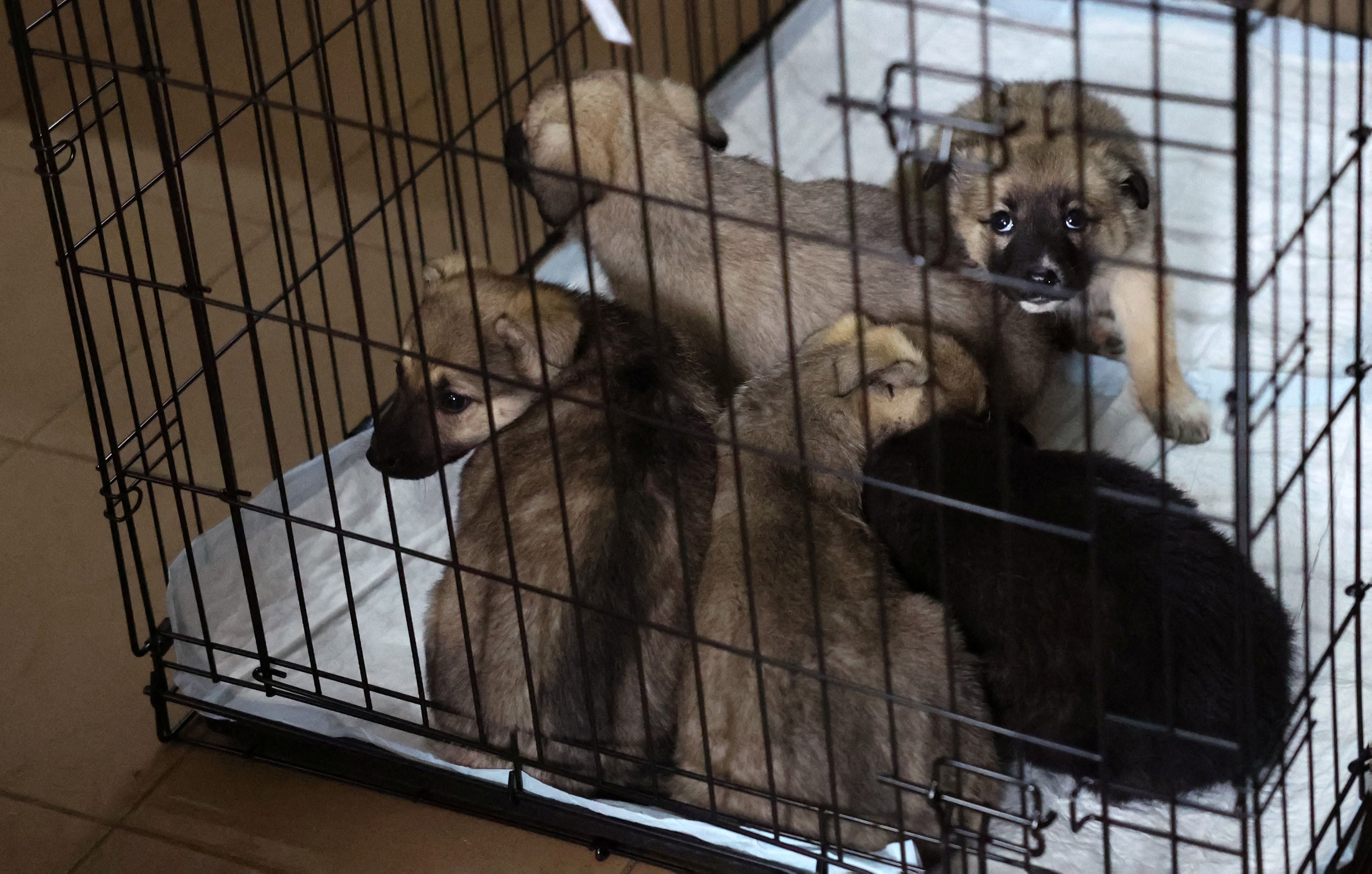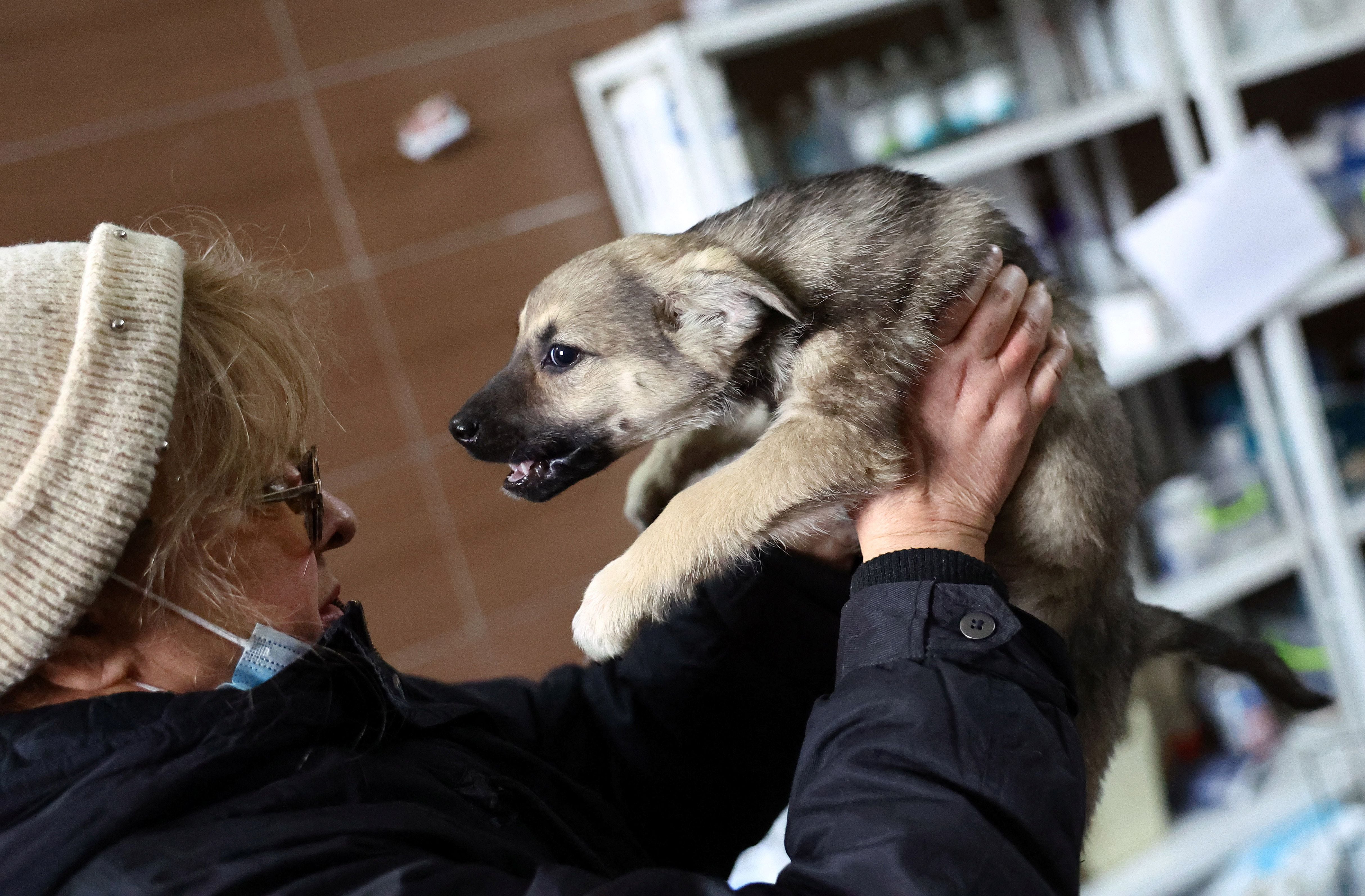:quality(85)/cloudfront-us-east-1.images.arcpublishing.com/infobae/GQX5G5T6NBANFOEP6TSRREUGRA.jpg 420w)
Many years ago, and especially in the very isolated peoples of the modern world and without communication or resources, some women, with a strong psychic imprint of maternal desire, could go through a “psychological pregnancy” which is what occurs when that woman thinks she is pregnant, without really being pregnant, presenting symptoms and objective signs peculiar to pregnancy.
Psychological pregnancy or “ghost pregnancy” represents one of the most debated conditions within the field of psychology. It is considered a strange syndrome because of its low prevalence, which is approximately 0.005% of pregnant women. Currently, in humans an ultrasound scan on time, can spoil any fantasy of pregnancy.
Anyone who lives with a dog, or more specifically with a dog, knows of the existence of a similar phenomenon with signs of pregnancy that occurs two months after the end of each infertile heat. Such a “psychological pregnancy” in the dog is neither pregnancy nor is it psychological.
It is not “pregnancy” because, in the world of animals, when we want to define the state of pregnancy, we speak plainly of pregnancy. Nor is it “psychological” because such a qualification would imply the dog's prior knowledge of her power to conceive and generate pregnancy, which is not rationally too possible.

The truth is that this phenomenon, often considered a disease, is not a disease but a physiological process, an absolutely normal picture that all female dogs go through when they are not pregnant.
The dogs that are nothing more than civilized wolves, refined descendants of those wolves who enter heat once a year and who, hopefully and in a good year become pregnant and reach a happy birth once a year.
The wolves who do not become pregnant, due to herd behavior, through a phenomenon called biological altruism, suffer hormonal and consequently physical modifications, similar to pregnancy, their belly swells, their tits are loaded with milk, and except for small differences in behavior, everything happens as if they had had puppies, although they never really had them. All this is done so that those who do not have puppies, for one reason or another, can act in solidarity and help real mothers by acting as nurses, in the raising of the lettuce.

This is how a real “puppy nursery” is constituted in which babies are raised together by all females. And the female dogs have inherited this quality. The difference with the wolves is that, since they do not live in a real doggy herd, and besides that their reproductive capacity is controlled by humans.
This phenomenon in female dogs is called “false pregnancy or pseudocyesis”, it occurs in all female dogs that have no offspring and is not a disease but a physiological process, absolutely normal. If we want to avoid it, there are two ways left: either the dog has a calf or we castrate her and she will not go into heat again, and therefore she will not be able to get pregnant or have a false pregnancy. False pregnancy is therefore a process of biological altruism that humans have taken for a disease trying to correct it instead of understanding and admiring it...
*Prof. Dr. Juan Enrique Romero @drromerook is a veterinary physician. Specialist in University Education. Master's Degree in Psychoimmunoneuroendocrinology. Former Director of the Small Animal School Hospital (UNLPAM). University Professor at several Argentine universities. International lecturer.
KEEP READING:
